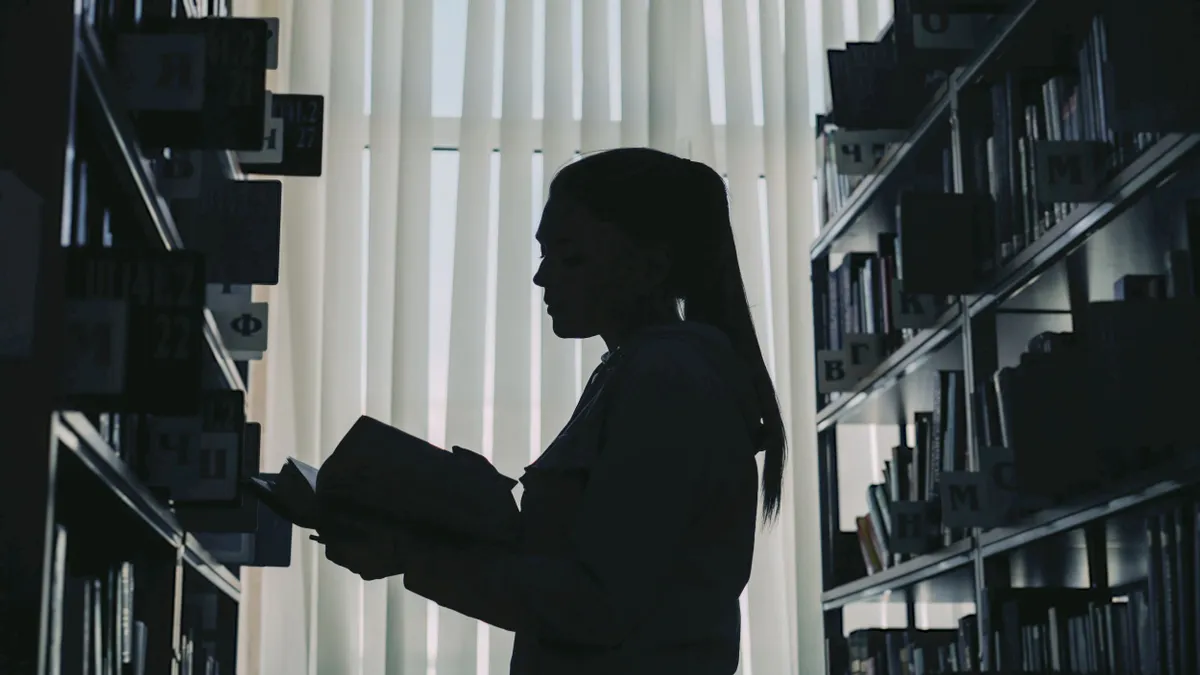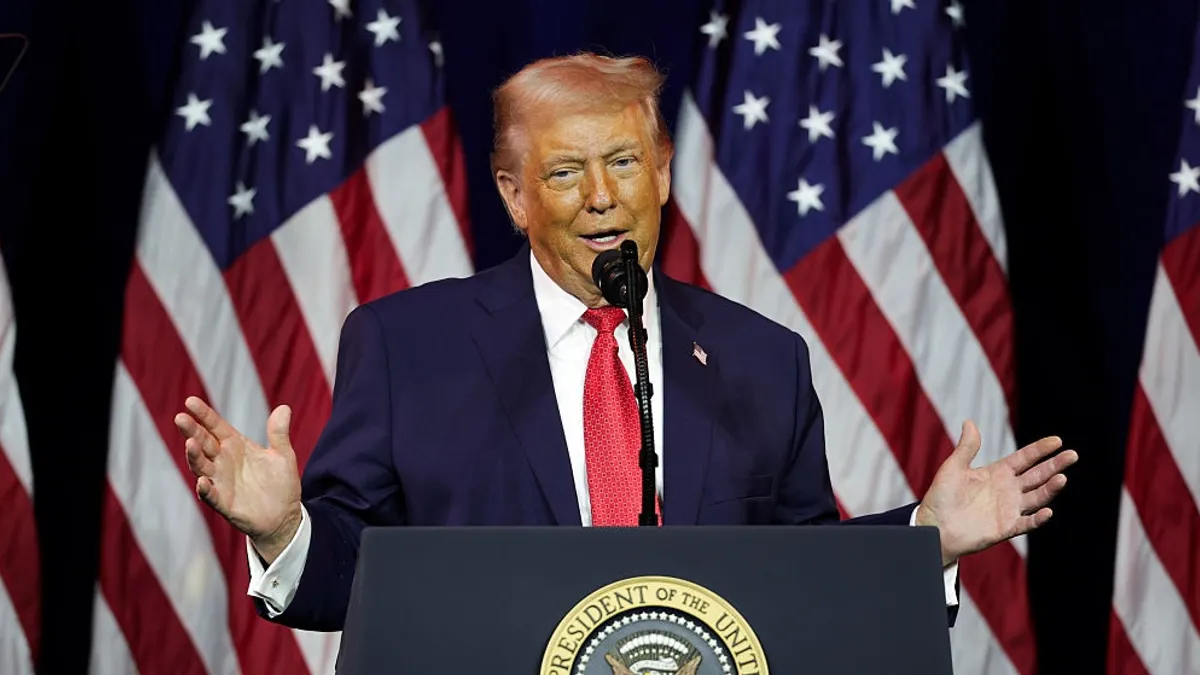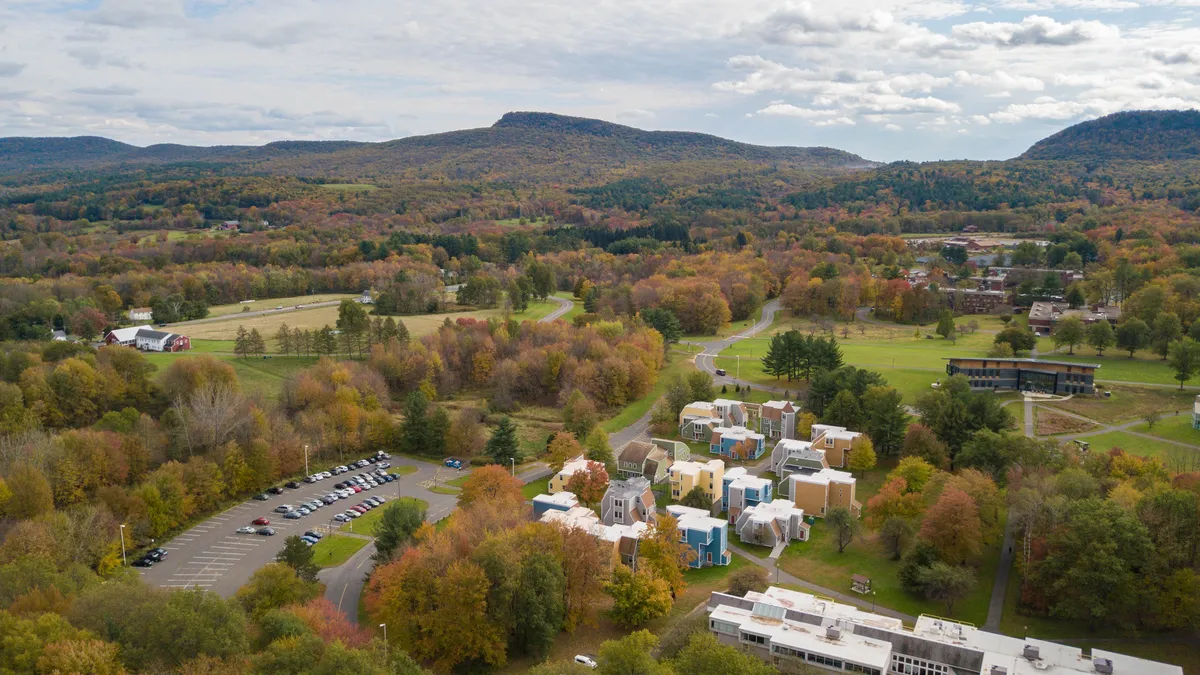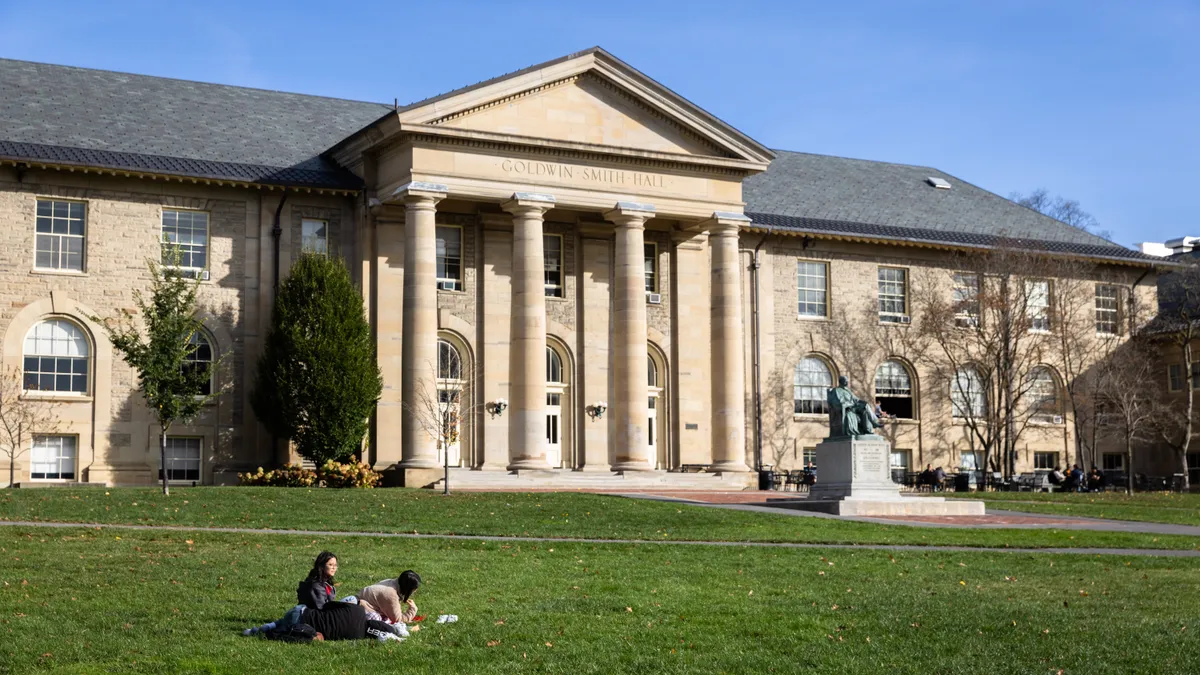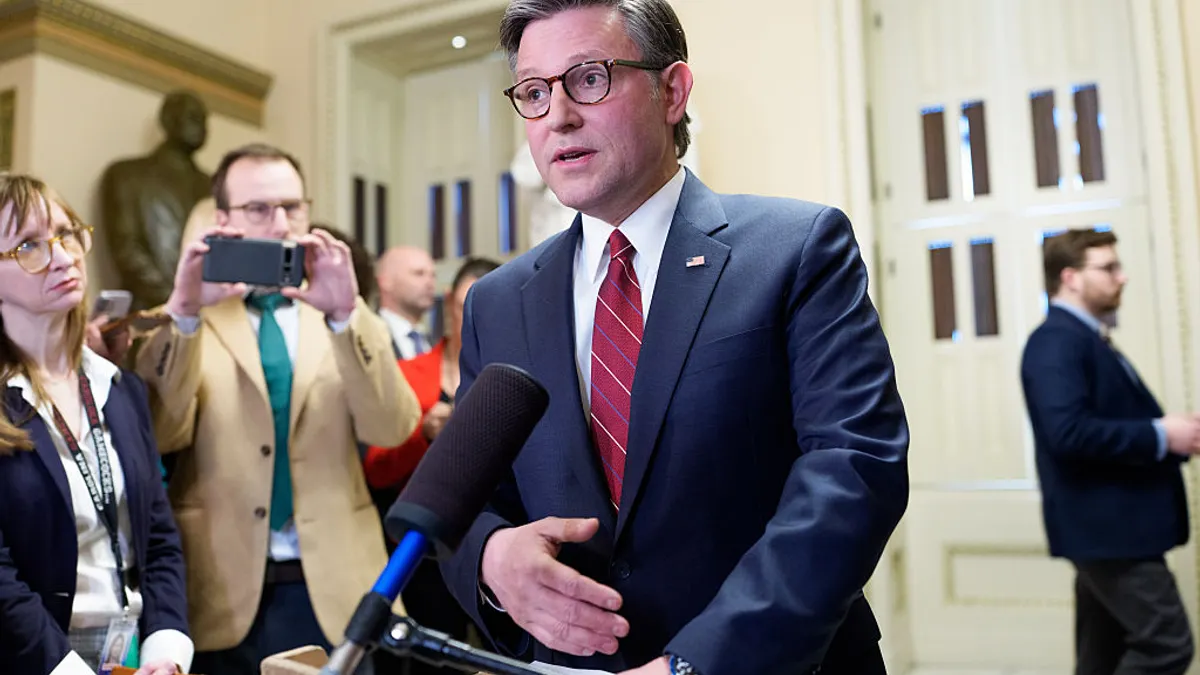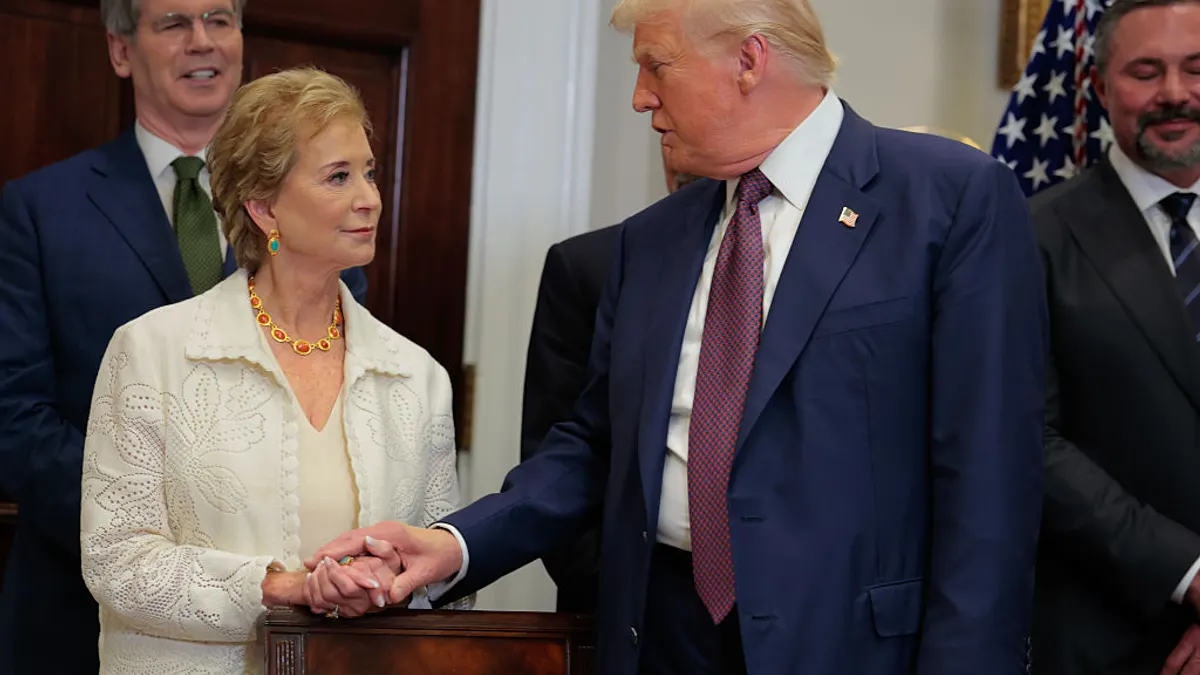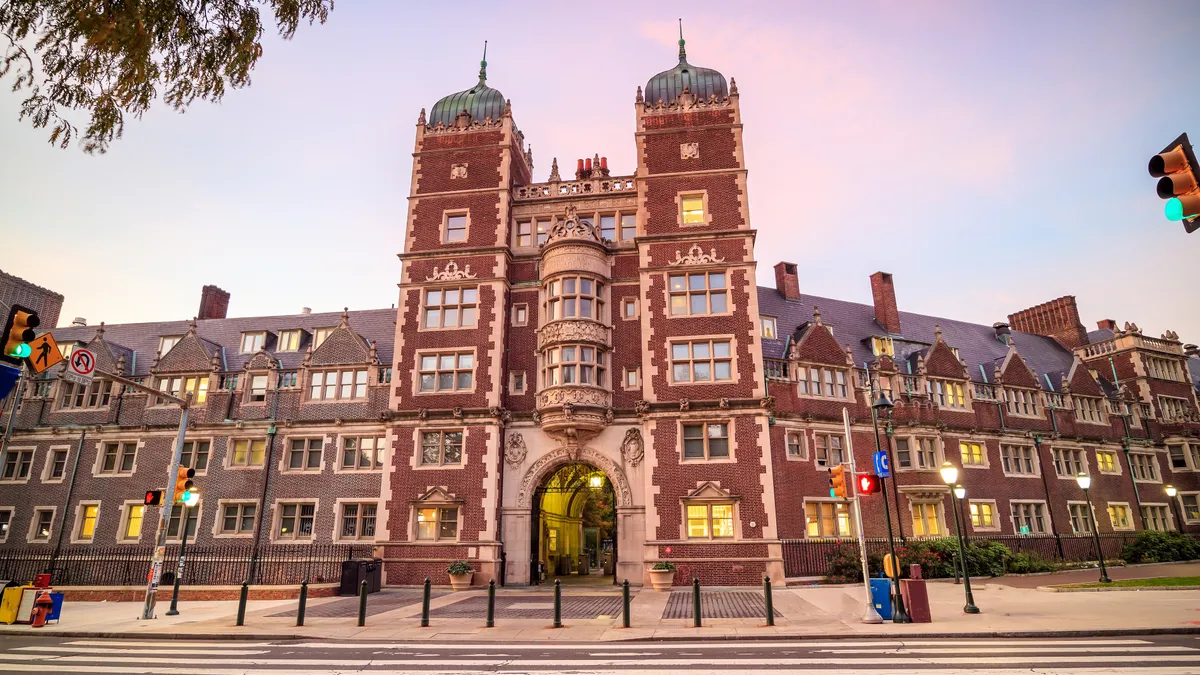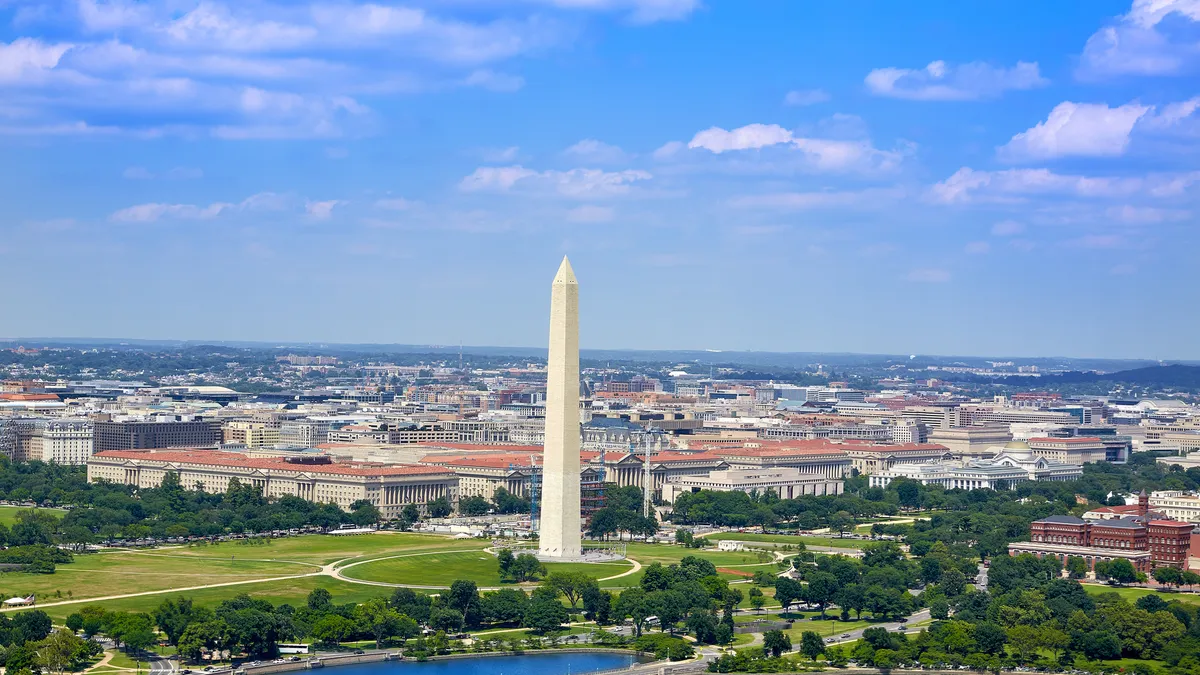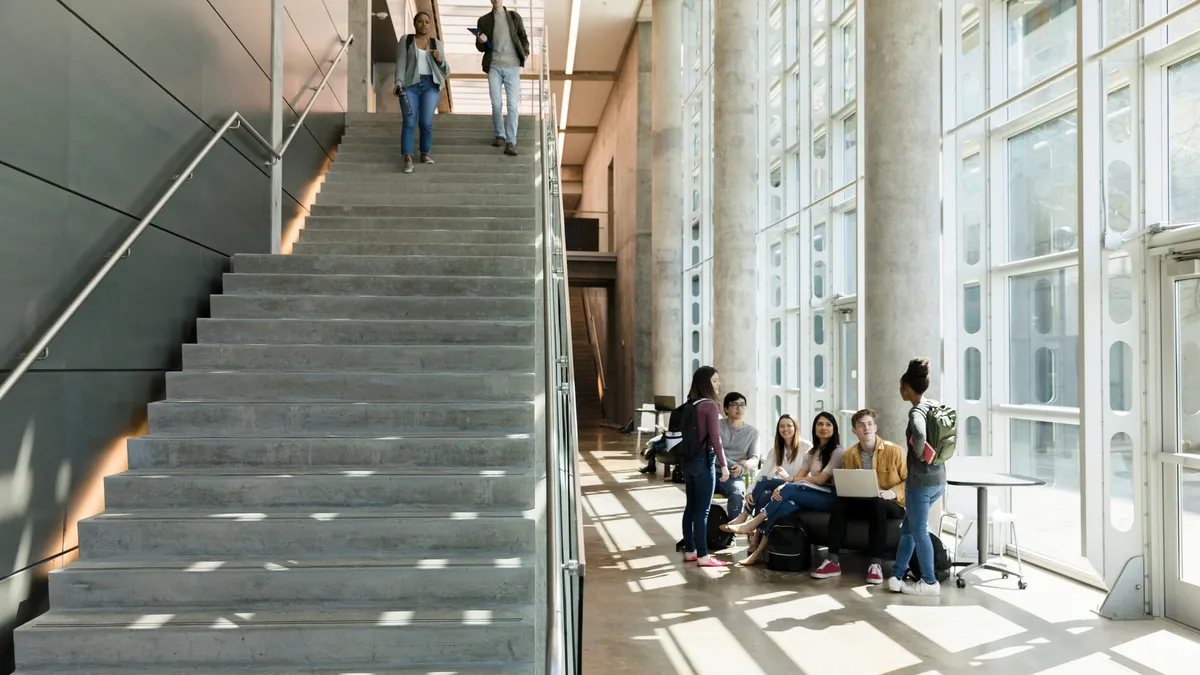More than 500,000 undocumented students enrolled in higher education in the U.S. in 2023, according to a new report from the Presidents' Alliance on Higher Education and Immigration and the American Immigration Council.
They pursue a range of programs and often seek advanced degrees — allowing them to advance scientific innovation, become business leaders and improve the campus community, the report stated.
However, the U.S. Department of Justice under the Trump administration has now filed lawsuits against five states, arguing that their policies allowing in-state tuition for certain undocumented students are illegal. Courts have struck down those policies already in Texas and Oklahoma, with the support of the states' attorneys general.
That’s left undocumented students uncertain whether they will be able to access in-state tuition down the road, potentially affecting whether they enroll at college, said Corinne Kentor, manager of research and policy at the Presidents’ Alliance in an email.
Along with targeting in-state tuition rates, the Trump administration has taken several other actions to crack down on undocumented immigrants and potentially make it harder for them to pursue higher education.
President Donald Trump, for instance, signed an executive order in January to review government grants and contracts to organizations that directly or indirectly support or provide services undocumented immigrants. And, in July, the U.S. Department of Education moved to prevent undocumented students from accessing federal funding for career, technical and adult education programs, as well as dual-enrollment programs.
Meanwhile, the Trump administration has launched a mass deportation campaign that has taken an emotional toll on undocumented students, who are fearing for themselves, their families and their loved ones, Kentor said.
In January, the administration also rescinded a 2021 memo that largely prevented immigration enforcement officers from carrying out deportation missions in certain areas, such as churches, schools and hospitals.
The rescission of that memo, coupled with heightened scrutiny of the higher education sector by the Trump administration, in general, has “compromised students’ trust in the safety of their institutions,” said Kentor.
Some students may have family members who have been detained, deported or lost income due to workplace raids, Kentor said. That could force undocumented students to take on additional financial or caregiving responsibilities.
“As immigration enforcement efforts intensify, students contend with daily decisions about how to navigate life on and off campus,” said Kentor.
Attack on in-state tuition policies
Undocumented students are mostly concentrated in a small number of states, the report found.
Nearly 103,000 undocumented students are enrolled at colleges in California, about 73,000 undocumented students attend institutions in Texas, roughly 49,000 in Florida, over 31,000 in New York, and nearly 28,000 in Illinois, according to the report, which is based on U.S. Census data.
About three-quarters of undocumented students attend public institutions.
Roughly 15% of all undocumented students are working towards advanced degrees. Of the students currently enrolled at a graduate school, nearly 29% hold an undergraduate degree in a STEM field.
Local immigration enforcement efforts and state tuition policies affect whether students can pursue advanced degrees. At the start of the year, 25 states and Washington, D.C. had policies that allowed certain undocumented students to pay in-state tuition rates.
But in June, a federal judge struck down Texas’s 24-year-old policy after the state's attorney general, Ken Paxton, backed a Trump administration lawsuit challenging the law’s legality.
In August, the Kentucky Council on Postsecondary Education, which implements the state’s in-state tuition policy for certain undocumented students, asked the court to declare it unconstitutional following a similar DOJ lawsuit.
Minnesota is also being sued over its in-state tuition policy, though the state’s attorney general’s office stated it will defend the law, according to the Minnesota Star Tribune. A spokesperson for Illinois’ governor likewise defended its own policy following a fifth DOJ lawsuit.
Undocumented students across the country fear they could soon lose their in-state tuition due to these lawsuits, Kentor said. The uncertainty has prompted some undocumented students to change their enrollment plans, take on additional work or private loans, or postpone their education altogether, Kentor.
The report warned that the rescission of these tuition policies could affect undocumented student enrollment in the coming years.
“Challenges to these lawful policies place enrolled and prospective students in affected states in an impossible position,” said Kentor. “Without knowing their financial options, they are unable to plan for the future.”
Importance of DACA
A little over a quarter of all undocumented students enrolled at U.S. colleges receive or are eligible for deportation protection through the Deferred Action for Childhood Arrivals program, the report from the Presidents’ Alliance found.
Launched under the Obama administration in 2012, DACA allows undocumented immigrants who arrived in the U.S. as children to avoid deportation and receive work permits during renewable, two-year terms.
But the fate of DACA is unclear after an appeals court ruled in January that a Biden administration regulation codifying the policy was unlawful.
For now, DACA recipients can renew their status as the courts consider the legality of the program, and there is currently no legal limitation on the processing of first-time DACA requests, the National Immigration Law Center stated in May.
The number of undergraduate students eligible for DACA has continuously declined amid the uncertain legal environment, said Kentor. The graduating high school class of 2026 will likely have few, if any DACA-eligible students, she said.

